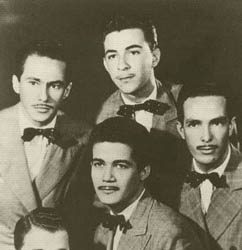
People practice this kissing ritual everyday
without even thinking about it. They wake up in the
morning
and kiss each family member, while saying
bom dia (good morning). A lot of people will even
greet
their co-workers with a kiss.
By
Lynn Lyra
Let’s talk Brazilian Culture! Why not start with the basics? Food. Everybody loves to eat, right? Well, don’t plan on
getting a big breakfast in Brazil. The typical Brazilian breakfast is bread—fresh from the bakery
(padaria), butter or jam, cheese, crackers, and last but not least, the famous
cafezinho (strong, black coffee in a little cup). But, if you like milk, you can have
café com leite (scalded milk with coffee). Most restaurants don’t serve breakfast, including McDonald’s. It seems to be the smallest meal of the day, and some
people don’t even eat, they just drink coffee.
Lunch is usually a family affair. An enormous amount of food is served, and most people get an hour or two off for
the afternoon break. A lot of people have maids who start making
almoço (lunch), around nine o’clock in the morning. It is
not a simple dish to prepare, as there are sometimes five or six dishes to make. The two most common everyday foods are
black beans and rice. There is almost always a salad on the table, along with the main course and several other fares.
Farofa is just one of the delectables you may have the pleasure of eating. It consists of butter, manioc meal, eggs, onion, garlic and
raisins—but the ingredients in farofa differ from family to family.
Now, after all that delicious food, they’ll serve
sobremesa (dessert). The various confections may include
pudim de leite (pudding, made of cream, in a caramel sauce),
torta de limão (lemon pie), goiaba e
queijo (guava and cheese) better known as Romeu e Julieta,
doce de banana (cooked bananas in a brown sugar sauce), carrot cake with chocolate frosting, or
bolo de laranja (orange cake). If you are really lucky, you’ll get to try
pavê (a cold dessert made with cookies, cream, fruit and
a little chocolate)—it’s absolutely sinful!
What’s for dinner (jantar)? Dinner is a very light meal, usually served no earlier than 7:00 P. M. Generally it includes
fresh bread, cheese cold cuts, crackers, fruit and coffee. In the North of Brazil, some favorites are Dog Bread (fried, buttered
bread), and fried cheese (made by melting chunks of cheese in a frying pan). The fried cheese is eaten with a knife and fork, and
sometimes served over crushed crackers with sugar on top. There is definitely no better way to eat cheese!
Here’s a handy etiquette tip. Use your knife and fork for just about everything you eat. Brazilians use utensils for
pizza, French fries, fried chicken, and on occasion, sandwiches and burgers. If sandwiches aren’t eaten with a knife and fork,
people usually wrap napkins around the bottom of them to keep from getting their hands messy.
Another interesting pointer about Brazilian manners is that the fork is held in the left hand and the knife in the right.
Meals are eaten slowly and plates are not piled high with food. People take very small servings of each of the different foods.
Then, if they are still hungry, they go for seconds.
Brazilians take a lot of pride in the way they dress. Jeans are always ironed. In the United States that went out in the
1980’s, but in Brazil walking around in wrinkled jeans is considered sloppy. Not only do they iron jeans, they iron everything!
Sheets, pillowcases, towels, pajamas, even underwear (which is ironed in little squares). Most Americans own dryers, and
therefore do very little ironing. For Brazilian people, a dryer is a luxury, as it cost about $1,000
reais (Brazilian currency), which is about $400 American dollars.
Men and women usually wear their shirts tucked in, and top off their jeans with a nice leather belt. Sneakers are
never worn dirty; this is a big etiquette no-no! About once or twice a month, sneakers, (especially if they are white) are
scrubbed with a brush and very strong soap.
What’s the hottest fashion in Brazil right now, for the ladies? At the moment, very tight hip-hugger jeans with teeny
little pockets on the derriere. You’ll need butter to slip into a pair of these. Halters and midriff tops are all the rage. Turquoise
is the color of choice right now. Pair your snug-fitting jeans and halter with big, fat, clunky sandals, a lot of silver jewelry
(especially bulky, hoop earrings) and you’re good to go.
Also girls, don’t forget to remove your cuticles, and paint your nails, any light color or clear coat will do. Light pink
and peach are the “in” colors right now. Dark shades are regarded as gaudy. Pretty nails are definitely a fashion statement.
If you want to do some great shopping, go to a big city such as São Paulo, Recife, or Rio de Janeiro. Downtown in
any large Brazilian city is where you’ll find the best buys and the most variety. The downtown areas are a lot like New York
City—taxis, buses, and people everywhere. You’ll find a few big department stores, but for the most part, shops are small.
That’s the fun part; there are so many places to shop. After all that walking you’re bound to get hungry, which is no problem,
as there are food vendors on every corner. Take your
pick—cachorro quente (hot dog), pastel
(fried pastry shell with meat, cheese or vegetable filling),
pipoca (popcorn—sweet or salty), and
doces (little sweets or handmade candies).
A little shopping advice, stick to Brazilian products, anything American-made in Brazil is jacked up three to four
times the normal price. There are very few automatic cars over there, so if you are planning to rent a car it is best to learn stick-shift before
you leave. But if you don’t—no problem, there are driving schools on just about every corner in Brazil.
Everyone drives on the right side of the road, but unfortunately two cars drive in a lane only big enough for one.
You have to drive defensively, as the country’s drivers show no mercy on the road. If you don’t get out of the way fast
enough there will be plenty of people laying on the horn, and screaming out their windows. Good luck to you in your driving endeavors!
There are many beautiful things to see in Brazil, but there are some sights not so pretty to the eye. As you drive
along major highways, you will encounter little shantytowns called
favelas. In English this means slums. The shacks are built
with old wood, plastic, tar paper, or basically anything that will hold it together. The poor people build their homes along the
highway, because they know it is government owned and they won’t be forced to move.
Passing the favelas you are bound to see women washing clothes by hand (using washboards), and lots of
outhouses. Most of these places have no running water or electricity. Amazingly enough, the residents of the
favelas are usually smiling. For the most part they are happy people. Being poor doesn’t get them down, they just live one day at a time.
On the subject of families, Brazilians are knitted very closely to one another. For these loving, down-to-earth people,
there is nothing more important than
família (family). Women don’t usually leave their father’s house until they marry,
although that is changing little by little with the times. In most family units the woman of the house stays home with the children,
if financially possible.
Relatives gather often on weekends for
churrascos (barbecues). Also, any holiday is a good reason to get together
with lots of food, music and dancing. Along with Carnaval (a week-long party in the streets—including parades, singing,
dancing, drinking, and beautiful half-naked women) and Ano Novo (New Year), Christmas is one of the biggest celebrations of
the year. Staying up late on Christmas Eve, with plenty of conversation, overindulgence, and waiting for Papai Noel (Santa Claus).
Santa Claus conjures up the image of children, who, for the Brazilian people are so cherished. Little ones are looked
upon as babies longer than is considered normal in the US. Children are not pushed to be potty-trained, or taken off the bottle
or pacifier at any specific time. Even some kindergarten-age children are given bottles at bedtime. Also, a majority of
women breastfeed their babies in public without covering their breasts. It is considered natural and beautiful. Breastfeeding
without shame is definitely a practice Americans should emulate. The United States sometimes comes off as too rigid in such
matters of the heart.
Once you make a few acquaintances in Brazil you’ll be greeted by a kiss on the cheek. This goes for men and women,
and yes, men kiss men—but it’s no big deal! People practice this ritual everyday without even thinking about it. They wake
up in the morning and kiss each family member, while saying
bom dia (good morning). A lot of people will even greet their
co-workers with a kiss. Of course you still have the traditional handshake. But people will only use that until they get to
know you. After awhile you’ll receive only kisses from your acquaintances and friends.
Brazilians are probably the friendliest people on the face of the earth. They will go out of their way to help others.
So, if you’re lost or in need in any kind of help, don’t hesitate to ask a passerby for assistance. Even if you don’t know
Portuguese, someone will take the time to try and understand you. Foreigners are received very well by the people of Brazil. There is
no discrimination in this personable, enchanting, land. Its people welcome the rest of the world with open arms.
Lynn Lyra is a freelance writer who spent eight months in Curitiba, Brazil, teaching English. She is married to a
Brazilian citizen, has two children, and currently resides in Saint Petersburg, Florida. You can write her at
lynnlyra@cs.com
Send
your
comments to
Brazzil



